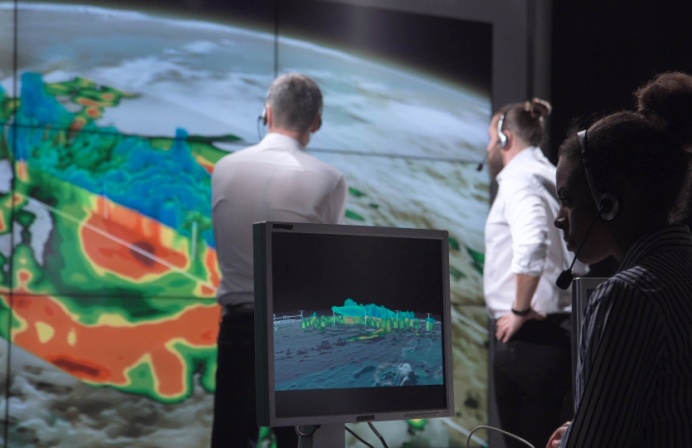
Developing ethical artificial intelligence (AI), along with building low emissions technologies and clean energy, have been identified as key challenges which will be tackled by a new multi-million-dollar partnership between Australia’s national science agency, the CSIRO, and the US’s National Science Foundation (NSF).
Under the terms of the new partnership, three Australia-US teams will become beneficiaries of responsible and ethical AI grants totalling US$1.8 million from NSF and AU$2.3 million from the CSIRO.
These three projects, aligned to CSIRO Missions, include:
- Fair sequential collective decision-making – University of Nebraska-Lincoln, Rensselaer Polytechnic Institute and UNSW Sydney.
- Understanding bias in AI models for the prediction of infectious disease spread – Emory University, Arizona State University, George Mason University, UNSW Sydney and RMIT University.
- Graph representation learning for fair teaming in crisis response – UCLA, The University of Texas at Austin, University of Technology Sydney and the University of Melbourne.
The two science research organisations, the CSIRO and the NSF, have already enabled a number of opportunities across the two countries over the last year, this month launching an AU$100 million Global Centers initiative, partnering in the areas of responsible and ethical Artificial Intelligence (AI) and in the development of sustainable materials.
“As the world races towards new applications for technologies like AI, it will take global collaboration to champion responsible and ethical applications that embrace the full potential of technological advances and drive healthy competitive advantages,” CSIRO chief executive Larry Marshall said.
NSF Director, Sethuraman Panchanathan, currently meeting researchers in Australia, added that the CSIRO-NSF partnership had already shown an early impact.
“Through this collaboration, we’re building a platform to mobilise the resources and capabilities of the research communities across the United States and Australia to address things which are a priority for both our counties but also the world, like climate resilience and unbiased AI-powered technologies,” Panchanathan said.
“With this collaboration also comes the opportunity to unlock our ‘missing millions’ – the untapped resource of those who are yet to be engaged for the science, technology, engineering, and mathematics (STEM) workforce who can provide diverse thinking and ideas,” he said.
The CSIRO this month joined as an anchor partner in the NSF Global Centres in Climate Change and Clean Energy program, involving the United States (NSF), Canada (Natural Sciences and Engineering Research Council of Canada and Social Sciences and Humanities Research Council of Canada), the United Kingdom (UK Research and Innovation), and Australia (CSIRO).
The Global Centres, with combined funding of more than AUD$100 million across the four partner countries, support international and interdisciplinary collaborative research centres, bringing together professionals from across the globe to address the most pressing challenges facing the world today.
In Australia, the Global Centres will be supported where they align to the targets of CSIRO Missions – specifically those that have been established to respond to the energy transition.





